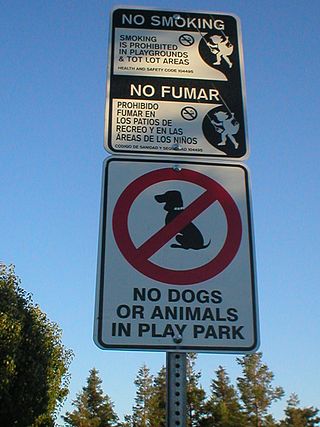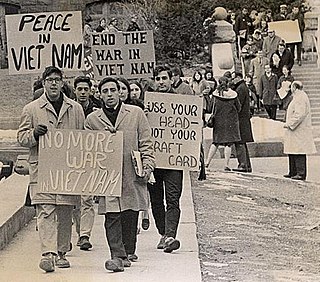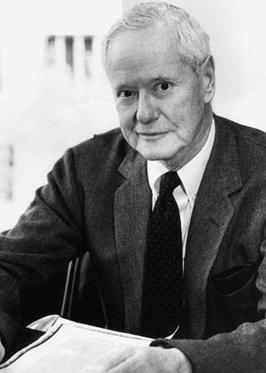
In sociology, socialization is the process of internalizing the norms and ideologies of society. Socialization encompasses both learning and teaching and is thus "the means by which social and cultural continuity are attained".

Social norms are shared standards of acceptable behavior by groups. Social norms can both be informal understandings that govern the behavior of members of a society, as well as be codified into rules and laws. Social normative influences or social norms, are deemed to be powerful drivers of human behavioural changes and well organized and incorporated by major theories which explain human behaviour. Institutions are composed of multiple norms. Norms are shared social beliefs about behavior; thus, they are distinct from "ideas", "attitudes", and "values", which can be held privately, and which do not necessarily concern behavior. Norms are contingent on context, social group, and historical circumstances.

In sociology, anomie is a social condition defined by an uprooting or breakdown of any moral values, standards or guidance for individuals to follow. Anomie is believed to possibly evolve from conflict of belief systems and causes breakdown of social bonds between an individual and the community. An example is alienation in a person that can progress into a dysfunctional inability to integrate within normative situations of their social world such as finding a job, achieving success in relationships, etc.

Social control is the regulations, sanctions, mechanisms, and systems that restrict the behaviour of individuals in accordance with social norms and orders. Through both informal and formal means, individuals and groups exercise social control both internally and externally. As an area of social science, social control is studied by researchers of various fields, including anthropology, criminology, law, political science, and sociology.
A role is a set of connected behaviors, rights, obligations, beliefs, and norms as conceptualized by people in a social situation. It is an expected or free or continuously changing behavior and may have a given individual social status or social position. It is vital to both functionalist and interactionist understandings of society. Social role theory posits the following about social behavior:
- The division of labour in society takes the form of the interaction among heterogeneous specialized positions, we call roles.
- Social roles included appropriate and permitted forms of behavior and actions that recur in a group, guided by social norms, which are commonly known and hence determine the expectations for appropriate behavior in these roles, which further explains the position of a person in the society.
- Roles are occupied by individuals, who are called actors.
- When individuals approve of a social role, they will incur costs to conform to role norms, and will also incur costs to punish those who violate role norms.
- Changed conditions can render a social role outdated or illegitimate, in which case social pressures are likely to lead to role change.
- The anticipation of rewards and punishments, as well as the satisfaction of behaving pro-socially, account for why agents conform to role requirements.

Youth culture refers to the societal norms of children, adolescents, and young adults. Specifically, it comprises the processes and symbolic systems that are shared by the youth and are distinct from those of adults in the community.

Robert King Merton was an American sociologist who is considered a founding father of modern sociology, and a major contributor to the subfield of criminology. He served as the 47th president of the American Sociological Association. He spent most of his career teaching at Columbia University, where he attained the rank of University Professor. In 1994 he was awarded the National Medal of Science for his contributions to the field and for having founded the sociology of science.

An institution is a humanly devised structure of rules and norms that shape and constrain social behavior. All definitions of institutions generally entail that there is a level of persistence and continuity. Laws, rules, social conventions and norms are all examples of institutions. Institutions vary in their level of formality and informality.

Structural functionalism, or simply functionalism, is "a framework for building theory that sees society as a complex system whose parts work together to promote solidarity and stability".

In the social sciences, social structure is the aggregate of patterned social arrangements in society that are both emergent from and determinant of the actions of individuals. Likewise, society is believed to be grouped into structurally related groups or sets of roles, with different functions, meanings, or purposes. Examples of social structure include family, religion, law, economy, and class. It contrasts with "social system", which refers to the parent structure in which these various structures are embedded. Thus, social structures significantly influence larger systems, such as economic systems, legal systems, political systems, cultural systems, etc. Social structure can also be said to be the framework upon which a society is established. It determines the norms and patterns of relations between the various institutions of the society.

This is an index of sociology articles. For a shorter list, see List of basic sociology topics.
Resocialization or resocialisation is the process by which one's sense of social values, beliefs, and norms are re-engineered. The process is deliberately carried out in military boot camps through an intense social process or may take place in a total institution. An important thing to note about socialization is that what can be learned can be unlearned. That forms the basis of resocialization: to unlearn and to relearn.

A sociological theory is a supposition that intends to consider, analyze, and/or explain objects of social reality from a sociological perspective, drawing connections between individual concepts in order to organize and substantiate sociological knowledge. Hence, such knowledge is composed of complex theoretical frameworks and methodology.

Marxist criminology is one of the schools of criminology. It parallels the work of the structural functionalism school which focuses on what produces stability and continuity in society but, unlike the functionalists, it adopts a predefined political philosophy. As in conflict criminology, it focuses on why things change, identifying the disruptive forces in industrialized societies, and describing how society is divided by power, wealth, prestige, and the perceptions of the world. "The shape and character of the legal system in complex societies can be understood as deriving from the conflicts inherent in the structure of these societies which are stratified economically and politically". It is concerned with the causal relationships between society and crime, i.e. to establish a critical understanding of how the immediate and structural social environment gives rise to crime and criminogenic conditions.

In criminology, social control theory proposes that exploiting the process of socialization and social learning builds self-control and reduces the inclination to indulge in behavior recognized as antisocial. It derived from functionalist theories of crime and was developed by Ivan Nye (1958), who proposed that there were three types of control:

In the fields of sociology and criminology, strain theory is a theoretical perspective that aims to explain the relationship between social structure, social values or goals, and crime. Strain theory was originally introduced by Robert King Merton (1938), and argues that society's dominant cultural values and social structure causes strain, which may encourage citizens to commit crimes. Following on the work of Émile Durkheim's theory of anomie, strain theory has been advanced by Robert King Merton (1938), Albert K. Cohen (1955), Richard Cloward, Lloyd Ohlin (1960), Neil Smelser (1963), Robert Agnew (1992), Steven Messner, Richard Rosenfeld (1994) and Jie Zhang (2012).

Sociology of terrorism is a field of sociology that seeks to understand terrorism as a social phenomenon. The field defines terrorism, studies why it occurs and evaluates its impacts on society. The sociology of terrorism draws from the fields of political science, history, economics and psychology. The sociology of terrorism differs from critical terrorism studies, emphasizing the social conditions that enable terrorism. It also studies how individuals as well as states respond to such events.

Deviance or the sociology of deviance explores the actions and/or behaviors that violate social norms across formally enacted rules as well as informal violations of social norms. Although deviance may have a negative connotation, the violation of social norms is not always a negative action; positive deviation exists in some situations. Although a norm is violated, a behavior can still be classified as positive or acceptable.
The social construction of gender is a theory in the humanities and social sciences about the manifestation of cultural origins, mechanisms, and corollaries of gender perception and expression in the context of interpersonal and group social interaction. Specifically, the social construction of gender theory stipulates that gender roles are an achieved "status" in a social environment, which implicitly and explicitly categorize people and therefore motivate social behaviors.
Primary socialization in sociology is the period early in a person's life during which they initially learn and develop themselves through experiences and interactions. This process starts at home through the family, in which one learns what is or is not accepted in society, social norms, and cultural practices that eventually one is likely to take up. Primary socialization through the family teaches children how to bond, create relationships, and understand important concepts including love, trust, and togetherness. Agents of primary socialization include institutions such as the family, childhood friends, the educational system, and social media. All these agents influence the socialization process of a child that they build on for the rest their life. These agents are limited to people who immediately surround a person such as friends and family—but other agents, such as social media and the educational system have a big influence on people as well. The media is an influential agent of socialization because it can provide vast amounts of knowledge about different cultures and society. It is through these processes that children learn how to behave in public versus at home, and eventually learn how they should behave as people under different circumstances; this is known as secondary socialization. A vast variety of people have contributed to the theory of primary socialization, of those include Sigmund Freud, George Herbert Mead, Charles Cooley, Jean Piaget and Talcott Parsons. However, Parsons' theories are the earliest and most significant contributions to socialization and cognitive development.






